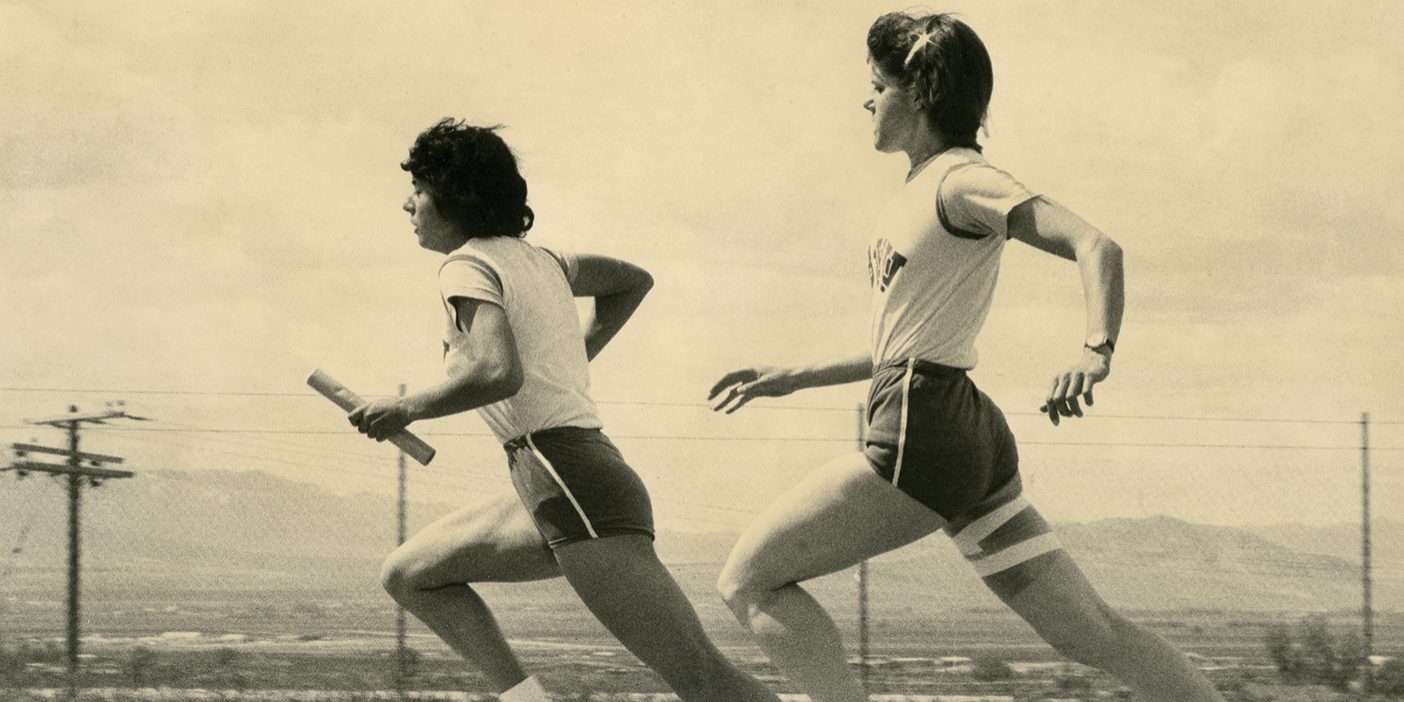Women—more than men—sometimes need a nudge to explore their possibilities.

Heather Bickmore Sundahl (BA ’91, MA ’94) never planned to go to graduate school. As a newly married BYU junior, she felt it was her job to finish her degree and work to support her husband’s education. That’s not what happened.
One day in class her English professor, Gloria L. Cronin (MA ’76, PhD ’80), handed a paper back to Sundahl and said, “You have a wonderful voice; you should get a master’s in English.” Sundahl shrugged it off and told Cronin she had other plans. A few days later Cronin repeated the recommendation. Then another professor asked Sundahl about her plans after graduation. “I’m thinking of getting a master’s,” she tentatively replied. “Wonderful,” the professor responded. “I’ll write you a letter of recommendation.” And just like that, a life-changing plan came into being, one that Sundahl says “has enriched my life in more ways than I can count.”
It turns out that three such bits of encouragement can be crucial for women to realize their potential. Sundahl learned more fully about this transformative role mentors play when she began working with BYU alumna Susan Willden Madsen (BA ’85) at Utah Valley University’s Utah Women and Leadership Project. Madsen, the Orin R. Woodbury Professor of Leadership and Ethics at UVU’s Woodbury School of Business, simply calls it “the tap.”
For years Madsen has studied women and girls in education and leadership, exploring the forces that either propel them toward or dissuade them from achievement. “One of the most powerful is when a friend or mentor verbally acknowledges a strength and encourages the person to act on it,” says Madsen. “I refer to it as the tap, because so often I found myself tapping a student on the shoulder and then communicating the message: ‘Pay attention. You’re talented and have a responsibility to do your share. Just do it!’”
But why women specifically? Don’t men and boys also need encouragement? Definitely, says Madsen. But research has shown that when it comes to education and careers, women need more of a push. Or pushes, as is often the case.
An oft-cited Hewlett-Packard internal survey found that while men will apply for a job when they meet just 60 percent of the qualifications, women tend to apply only when they meet all of them. Some have argued that this is because men are socialized to be more confident. Others conclude that women are more inclined to take the job requirements as requirements, instead of an employer’s wish list of skills.
This same gender gap exists in the political arena, where women are much less likely to run for office. Researchers have found that prospective female candidates are much more concerned with their qualifications and expertise than are their male counterparts. Even when men and women have almost identical résumés, men are nearly twice as likely as women to deem themselves “very qualified” for an elected position.
So what’s to be done? Madsen notes that women who are recruited, or tapped, by a mentor or activist are twice as likely to run for an office. But it starts even earlier than that, she says. Girls and young women who are encouraged to run for office by a parent and at least one other family member are about 42 percent more likely to consider it than those who get no push.
Madsen says it often takes three taps for a woman to decide to act on the encouragement. “That’s how it was for me,” adds Sundahl. “I remembered my professor planting the idea; her follow-up validation helped that take root; and my other professor’s reinforcement propelled me to action.”
Madsen recalls a woman who recently sought her advice about whether she should start a political campaign. “She had a long list of pros and cons, and as we spoke I felt strongly that the Lord needed this woman as a force for good in the community. I touched her arm and said, ‘I think you know what you need to do.’ After some moments of powerful, Spirit-filled silence, we shed a few quiet tears together.”
Sundahl says many taps come by the Spirit, encouraging people to share a talent or serve in unfamiliar ways. These nudges remind us that we can do more and be more.
“It’s astounding how powerful a simple nudge can be,” says Madsen. She encourages all “to use the tap early and often.”
“When it comes to education and careers, women need more of a push. Or pushes, as is often the case.”












